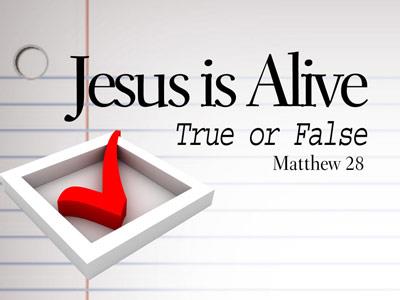-
The Chruch Needs To Worship Jesus
Contributed by Ronald Harbaugh on Nov 28, 2017 (message contributor)
Summary: A sermon for the 5th Sunday after Pentecost, Proper 9, series B.
5th Sunday after Pentecost [Pr. 9] July 5, 2009 “Series B”
Grace be unto you and peace, from God our Father and from our Lord, Jesus Christ. Amen.
Let us pray: Dear Heavenly Father, you have come among us in the person of your Son, Jesus the Christ, your living Word, incarnate in human flesh. Through the power of you Holy Spirit, open our hearts and minds to receive Jesus as your means by which you pour out your redeeming grace, and enable us to call upon you for our salvation. This we ask, through his holy name. Amen.
Back in 1979, I began a sermon on our Gospel lesson with a quote from a theologian by the name of the Reverend Dr. Joseph Sizoo, the source of which has long been forgotten. Nevertheless, I would again like to begin my meditation this morning by citing his comments. Dr. Sizoo states, “The most distinguishing characteristic which separates Christianity from all other religions lies in the personality of its founder.”
He then goes on to state, that “Hinduism is based on a loyalty to an idea; Confucianism is loyalty to a tradition; Shintuism is loyalty to a country; and Islam is loyalty to a code. On the other hand, Christianity is loyalty to a person. You might conceive of Christianity without an organization; you might conceive of it without a ritual; you may even conceive of it without a creed. But to think of it without Jesus as the Christ, the Son of God, is impossible.”
What is disturbing, however, is that in the long years of its history, the Christian Church has often lost sight of that fact. We have taken secondary things and made them primary; we have taken primary things and made them secondary. In short, we have lost sight of the gardener in his garden; we have forgotten the king in his kingdom.” End Quote.
In all honesty, this is how I feel at this point in my life, as I see our church spending so much energy pursuing issues that are motivated by the political agenda of our culture, rather than embracing and following Jesus, the incarnate Son of God. After all, he is and always will be the center of our faith. He is God’s incarnate Son, who gave his life to reveal God’s will for our lives, and accepted death on the cross that we might know the redeeming grace of God.
Yet in light of all of the various issues that confront us in today’s society, is the question that each of us has to ask ourselves – who is it that we truly worship? Is it an idea, such as Hinduism worships – an idea such as the freedom of the individual to pursue his or her own interests? Is it loyalty to a tradition, such as Confucianism – in which we view history as the test of what will work, and squelch innovation? Is it loyalty to our country, such as Shintuism espouses – in which we vow to support our nation, right or wrong? Is our loyalty to a code of ethics – such as caring for the poor?
All of these issues might seem laudable. All of these issues might even
inspire us from time to time, to get motivated and get involved in helping those around us, or even taking some time to care for ourselves, to recharge our batteries. But the Christian Church does not worship any of these noble ideals. We worship Jesus the Christ, who is God’s incarnate Son, his word become flesh.
Yet in actuality, we know little about him. He wrote no book, and kept no diary. All that we know about him is recorded in a few pages at the opening of the New Testament, which we can read in a couple of hours. He grew up in a country village, among the common people. He had at least four brothers, and more than one sister. For most of his early life, he was but one of the children living in the community of Nazareth. He even learned his father’s occupation, that of a carpenter.
But then things began to change in his life. It was if a fire burned within him, that of his relationship with God the Eternal Father. Although a human being, he knew that he was different. And so, he followed the call of God, and proclaimed God’s word to all who would listen.
Now this was not just someone who felt some mysterious call that they perceived to be the call of God. This was God’s own Son, who when he came to be baptized by John at the Jordan, God himself proclaimed to be his Son with whom he was well pleased. And so Jesus began his ministry, preaching to the crowds and healing those in need, and still there were some who questioned his authority.

 Sermon Central
Sermon Central



